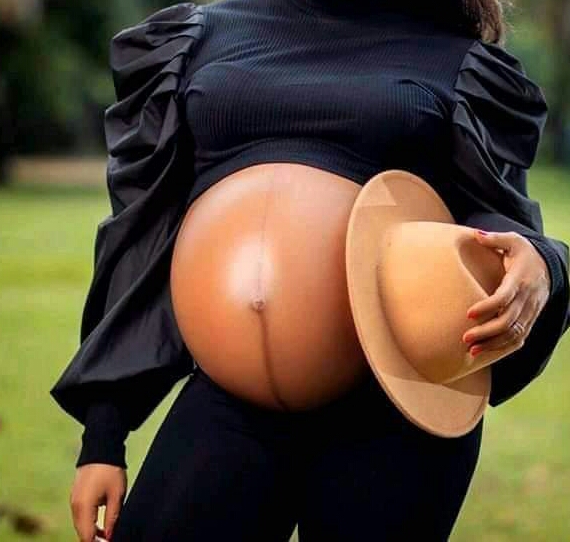
The World Health Organistion has always advocated exclusive breastfeeding for new born babies for, at least, the first six months of their life. But for many infants adopted by childless mothers, this appears impossible as the breasts of many of the mothers cannot produce the milk the babies can suck. Checks revealed that many of such women who cherish feeding the babies with breast milk often have to contract the job to someone else while some others resort to artificial formula, oblivious of the inherent health hazards. But contrary to belief in many quarters that childless mothers cannot breastfeed babies, findings revealed that it is possible for adoptive mothers to feed their babies with breast milk, INNOCENT DURU reports.
⦁ Travails of childless mothers who can’t breastfeed adopted babies
⦁ Adoptive mothers contract breastfeeding duties to relations, others
⦁ Ignorance responsible for barren women’s inability to breastfeed — Expert
⦁ What they can do to make their breasts produce milk —Pediatrician
Waah! Waah!! Waah!!! Baby Charles cried after a fruitless effort to draw milk from the breasts his adoptive mother yielded no result. The tot kicked the air frantically as he plugs and unplugs his little mouth from the mother’s breast.
His cry elicited the helpless mother’s emotion as her eyes glistened with tears. She had opted to adopt the baby after years of childlessness in the hope that she would be able to breastfeed the baby following the advice she got while adopting the baby.
“I feel very unhappy about it,” she said. “I wish I could breastfeed him to make up for the labour room experience I didn’t have. I have resorted to feeding him with infant fomular since then, trusting God that all will be well.”
Health experts believe that infants who are not breastfed risk high rate of morbidity from infections as well as elevated risks of childhood obesity, type 1 and type 2 diabetes, leukemia, and sudden infant death syndrome. For mothers, failure to breastfeed is associated with increased incidence of premenopausal breast cancer, ovarian cancer, retained gestational weight gain, type 2 diabetes, myocardial infarction, and the metabolic syndrome.
Charles’s mother is not alone in her depressing experience. Findings showed that hordes of childless women have the same unpleasant experience after adopting babies. Many of them are subjects of abuses and unbridled insults from members of the public who expect them to breastfeed their crying babies.
Chiamaka, another woman who also adopted a baby after years of barrenness, says it hurts that she is not able to breastfeed her adopted child.
She said: “My husband and I had to move out of the house we lived in when we adopted our baby because I had feigned pregnancy before the adoption.
“Many of the people who came to congratulate me expected me to breastfeed the baby each time she cried while others who suspected that the baby was adopted wanted to confirm their suspicion by insisting that I should breastfed her.
“When I saw that the embarrassment was becoming unbearable, we moved to another area where we were not known.”
For Sade, another childless woman, her decision to adopt a baby only ended up in another round of headache.
She said: “I was in ‘pudah’ of sort for many months after I adopted my baby, because I didn’t want people to suspect that I could not breastfeed. My breasts were not bigger than they were before I adopted the baby, so that alone was capable of giving me out. I decided to stay indoors and had my hubby tell people I was on bed rest.
“I desired breastfeeding the baby by myself and not by a proxy who could use it against me in future. Each time I see my friends breastfeeding their babies, I wish to be like them. One day, one had her breast bitten while her baby was sucking. She asked me how I felt whenever I experienced the same thing. Of course, I responded by telling her the stories I have heard from others. But when I got to the corners of my room, I wept. ”
Another adoptive mother, Esther, said she and her husband arranged for another woman to breastfeed the baby after they adopted him. “I know the importance of breastfeeding. What I did was to make sure that the person that helped to do the breastfeeding is a trusted family friend. The baby is grown and doing well now,” she said.
For Mathias, an adoptive father, the pain of adopting a child lies so much on the financial burden of buying baby food every three days.
He said: “If my wife had had her own baby, I would not have been spending so much every week on breast milk, because she would be able to breastfeed the baby herself. I spend about N10,000 weekly on baby food. It is taking a toll on income.
“If my wife had her own baby, we would have been saving that money or using it for other pressing needs. You won’t understand what I am talking about because it is he who wears the shoe that knows where it pinches.”
Five reasons childless mothers cannot breastfeed adopted babies
Popular dietician, Malomo, said while it may be psychologically difficult for a woman who had never been pregnant or given birth to a baby before to produce breast milk because the process had not previously been stimulated, for those who had given birth before and subsequently adopted babies, their body had been prepared for milk production. So, once there is a sensation, the brain will start to initiate the process of breast milk production.
Corroborating Malomo, a pediatrician, Dr. Titi Adesanmi, said it is medically possible for adoptive women to breastfeed their adopted babies, but she gave five reasons why most of them are not able to do so.
She said: “It all depends on what the woman’s medical problems were that made her not to have a child in the first place. If she has hormonal problems (hormones are chemicals in the body that helps the body to function the way it should) or these chemicals are abnormal, not present in the right quantities, or maybe some are even absent, some of those chemical imbalance can be responsible for her not being able to breastfeed, meaning she is unable to lactate (produce milk).
“One of the chemical substances responsible for milk production in a woman may be absent, it may be insufficient, it may even be present in the normal quantity but there are other problems not allowing that chemical substance to do its work. If part of the reasons the woman could not have her own child was hormonal problem, that same problem may make her unable to breastfeed any other child.
“How would she know? The same gynecologist who has been managing her all the while in trying to have a child of her own would be able to answer all those questions for her, would be able to assess her and tell her what exactly the problem is, whether she will be able to breastfeed or not.”
Another reason why a woman may have a challenge breastfeeding, Dr. Adesanmi said, is psychological and emotional factors. “If a woman herself psychologically and emotionally feels that she will not be able to do it, no matter how hard you try, as long as in herself she believes she can’t do it, it won’t work. The body senses it and responds to that and she will just find that she is not able to produce milk.
“The third reason why lactation may not occur is if the woman is under a lot of physical stress. If for example she doesn’t have family support or husband support and it is only her and the child she has adopted, the physical stress of managing that baby alone is even sufficient to make her not be able to produce breast milk. That is why we tell all mothers when they have their babies that they must rest physically because physical exhaustion is a form of stress for the mother and the body senses it, and the milk production will either not occur or it will be very poor.”
Continuing, she said: “The fourth reason is if the woman is not taking enough water. This is the commonest and the easiest to address. She needs to take enough water. What do we mean by enough water? In an environment like ours where it is hot and humid, we sweat a lot. She needs to take at least six litres of water daily for her to be able to produce enough breast milk.
Of course she can’t just sit down and drink the six litres at once. If she tries it, she will pass out all the water at once. She has to time herself and set an alarm. Every one hour, she will drink water. The way I always counsel mothers is that they should have a container that measures half a litre. When they have that, they should set their water alarm. Every one hour rings and they drink half a litre. By the time they have done that in 12 hours, they would have taken six litres of water.
“We have 24 hours in a day. There is no woman that sleeps for 12 hours a day. It is not possible even if she us not nursing a baby. It will not interfere with her sleep because she is going to be awake for more than 12 hours every day. That is the way to get it done in a way that the water is retained and it is useful. “
The fifth reason, according to her, could also be poor posturing of baby- the way the mother puts the baby to the breast. “If she puts the baby to the breast in a wrong way, it will cause her a lot of pain when the baby tries to suck. That pain itself is a form of stress. That pain will send a message to the brain: ‘Make sure you don’t produce any milk, because if you do, this pain will continue. If you don’t produce any milk, the baby will stop sucking and the pain would stop.’ It is important that she positions the baby correctly so that she is not in pain and there is pain negative feedback to the brain telling her not to produce breast milk.”
She said she had met a lot of such women in her over 20 years of practice and they are never happy for being unable to breastfeed their adopted babies.
She said: “They are actually willing to breastfeed because they really want to have the complete experience of motherhood. However, the challenge that a lot of them have is that breast milk does not actually flow.
“In my interaction with some of them, their hormonal problem that made them not to have their own children was the reason behind it. For some others, the discipline to drink the required amount of water is behind it.
“For some of them, it is emotional stress. They love to breastfeed and when they are not able to do so, they feel unhappy about it, which worsens the vicious cycle.
“When I have assessed them and found that it is a matter we won’t be able to solve, I then have to do psychotherapy for them. I tell them we need you to be happy to manage this child very well. This is a challenge we will not be able to solve.
“You will use formula to feed your child to make sure she is not malnourished and you just have to refuse to let the fact that you didn’t succeed in trying to achieve lactation weigh you down. I really have to encourage such women, and when we use the formula, the children do well.”
Diet may not work for adoptive childless mothers
Malomo, a frontline dietician, ruled out the possibility of using nutrition to assist childless women to lactate and breastfeed their adopted children.
He said: “For those who had given birth before and subsequently adopted babies, their body had been prepared for milk production. Once there is a sensation, the brain will start to initiate the process of breast milk production.
“For someone that has never been pregnant or given birth before, it may be physiologically impossible. I stand to be corrected. Because the process has not been stimulated, breast milk will not come out in quantity that is needed to satisfy an infant. For such women, it is better to use infant formula.
“After six months the mother can introduce complementary food. Nutrition does not play a role in the production of breast milk for such mothers. But for the other mother that had suckled before and later adopts a child, adequate nutrition mixing up with the recommended dietary allowance will help.”
Continuing, he said: “When you look at the physiological perspective, any woman that has given birth before at any point in time, if a child is brought to suckle, it will take time for that person to lactate. For a woman that has not given birth before, such an individual will not lactate.
“If the woman that adopts a baby had given birth before, that means that diet may work for her. But for the other category, it tends to be impossible. Such an individual will have to depend on breast milk substitute to feed such a baby.
“For a woman that has given birth before, what you need to do is to increase her dietary intake to meet up with recommended dietary allowance. When a woman is pregnant, there is a particular recommended allowance that is needed.
“For a woman that is not pregnant, there is a particular allowance and for a lactating mother, there is a particular recommended dietary allowance. This allowance is to make room for good nutrition for the upkeep of her body.
“Foods that are in this category include proteinous food like eggs, beans and fish taken adequately to meet the recommended allowance. Then they need carbohydrate because of energy. Foods in this category include yam, Irish potato, banana, bread and rice.
“They also need fruits and vegetables like orange because of folic, avocado pear, banana combined with vegetables. Then a little portion of oil like palm oil, groundnut oil because of fat soluble vitamins.”
When they are taken within the recommended allowance, he said: “You will discover that even though the quantity may be little initially, with time, the lactation will improve. When the baby is sucking, he will stimulate the breast and the milk will improve with time.
“The woman will also have to drink water adequately. We have some items that can also stimulate breast milk production like taking nuts like cashew nuts, groundnut and coconut. With all these, they will see better lactation.”
‘Ignorance responsible for many adoptive mothers’ inability to breastfeed’
Rubbishing the thinking of many childless women that they cannot breastfeed when they adopt babies, a child and public health physician, Dr Rotimi Adesanya, said it is ignorance that makes many adoptive mothers to think like that.
He said: “It is out of ignorance that they can’t breastfeed. If they go through the normal routine, the doctor will give them that option to try and initiate that process. Some people may not be able to initiate that process, but most people will be able to initiate it. They just also need to be encouraged by the medical personnel and people at home.
“When you put the baby to the breast, milk will start coming out. There is a physiology for that. It may not come immediately. It may not come the first day or the second day. The mother will also need to encourage herself too. She will have to be supported to have enough rest and take enough fruits. It is not instantly that it will come, but it will definitely come. But it doesn’t happen in everybody.
Why it is delicate to contracting outsiders to breastfeed baby
Health experts also warned adoptive mothers against contracting other women to breastfeed their babies.
Dr. Adesanya said: “Back in the village, somebody who is not the mother of a child can start breastfeeding him. Why people have relaxed about that one is because of all these HIV, Hepatitis B that can be transmitted through breastfeeding.
Echoing Dr Adesanya’s position, Dr Adesanmi said: “Those are the things we are worried about. We are worried about how clean the person to breast feed is. Is she a carrier of disease that can be transmitted to the baby? That is our concern. Once we are able to see that the person doesn’t have all that and that the hygiene of handling the baby is satisfactory.
“Also, if there is emotional acceptability between the women and the person who is to breast feed the baby. That will be okay but we cannot legislate that. It is done on case by case basis, and the people involved would have to take that decision by themselves.“
Breast milk versus baby food
Experts have underscored the health benefits of breast milk over infant formula.
“Breast milk has so many advantages,” said Dr Adesanya,, adding: “ It has natural anti-biotics that protect the baby. The first breast milk called colostrum has a lot of antibodies that protect the baby throughout life.
“Some conditions like diarrhea, asthma are linked to baby food. We call it cow milk allergy. Most of the baby milk is from cow milk. Some of those babies may develop problems like asthma early in life, unlike babies that take breast milk.
“Baby food is recommended for mothers who cannot eventually produce breast milk. If the breast milk is not coming, they can still put the baby to the breast because there is a bonding between the baby and the psyche.
“There is this reflex that babies have. We call it suck reflex. If you put anything in a baby’s mouth, he will start sucking. If they can still not breastfeed, let them still be putting the breast in the baby’s mouth. The baby will still suck even if nothing is coming out. That will create bonding between the mother adopting and the baby. “
While noting that artificial formula popularly called baby food is not harmful, Adesanya said: “When you compare it with breast milk, it is second class. It is not as nutritious as breast milk. It doesn’t have as much nutrient as the breast milk.
“The preparation of baby food involves a lot of things like boiling water, cooling the water, washing the bottle. As a result of this, germs do come in. Some may not even get the preparation well. That is why it is said that breast milk is the best and it is the optimum.
“Part of the code of conduct for marketers of baby food is that they have to first talk about breast milk. They are mandated to tell mothers that breast milk is the best.
“Cost wise, it is economical for parents to rely on breast milk than buying baby milk. We have what we call contra indication. Some women cannot breastfeed due to one medical condition or the other. If those ones happen or the mother dies, WHO has left the gap for those ones to use infant formula.
As a pediatrician, Dr Adesanmi said, any day any time, breast milk is the best option. All mothers everywhere, breast milk is what we would rather have them give. It is not a theoretical reason and it is not imaginary. Having been a pediatrician for over 20 years, these are things that I have been seeing.
“Children that get breast milk tend to, in terms of health, do a lot better than those that don’t. In what ways do they do better? They don’t fall sick frequently, because there are protective elements inside the breast milk that protects them from diseases.
“Even when they fall ill, they get well quickly for the same reason. Protective elements inside the breast milk help them to recover faster than the children who don’t get those protective elements. Those protective elements are not in the formula milk.
“In this part of the world where infections are the major cause of sickness and death in children, we can’t make that noise enough that children should get as much protection from disease in form of what we call anti-bodies from breast milk.
“There is what we call breast milk bank where women can donate their breast milk and other babies can be given that breast milk. Of course we will check the breast milk and make sure that the woman who donated the breast milk does not have HIV or tuberculosis, because those things can easily spread.
“We would also make sure the breast milk is sterile. The fact that the donor is not the biological mother of the baby does not mean the baby cannot benefit from her breast milk, because she has the relevant anti to protect the baby from illness.”
She added: “The second reason why we make so much noise about breast milk for the baby is optimum brain development. Those on formula also do well intellectually. Their brain also develops. But none of us knows what would have been the optimal brain development for that child who never got breast milk, and we would never know.
“This child never got breast milk but she ended up graduating with first class may be in Engineering. We don’t know what else that child would have done and we would never know. Sometimes, we have not detected scientific ways of assessing the brain to know that this baby has potential for this. But we do know from observation that babies that get breast milk do very well almost effortlessly academically.
“When we talk about optimal brain development, it is not just about intellect. In terms of emotional stability, in particular for those babies that are able to suckle directly from the breast, that suckling is a form of bonding.
“For us, the two main reasons why we make much noise about breastfeeding are for protection from disease and optimal brain development. But, of course, where the breast milk is not available, it will be very okay to use formula, because a lot of improvement has been done on various formula feeds and they are getting better. It is just that it is still not 100 per cent like the breast milk.”












